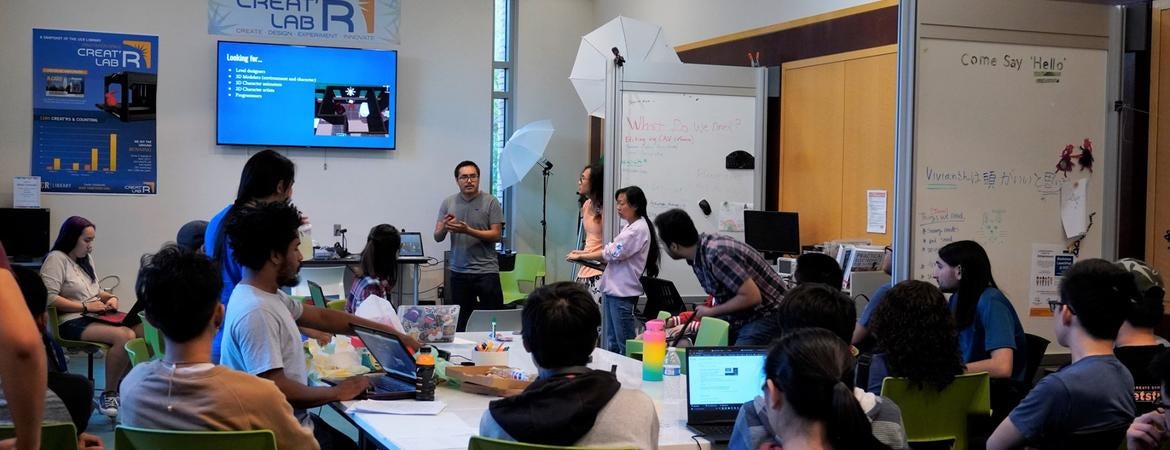College of Humanities, Arts, and Social Sciences

Gamespawn is a UCR club that offers members the ability to collaborate and work on the development of video games. The club meets on campus during the academic year on Tuesday evenings, 5-7 pm in Bourns A171.
“[Joining Gamespawn] was intimidating at first,” said second-year psychology major and current Outreach Coordinator Yvette Chen, “but once I started making friends and going to the events, I felt more welcome and confident.”
Gamespawn combines a passion for the arts and humanities with an intricate knowledge of programming and design that helps bring environments and stories to life. For CHASS students, it’s a way to break into a field that’s often misidentified as being dominated by programmers.
“We work with CHASS students in every step of development,” said Christian Alvarado, fourth-year computer science major and former vice-president and current producer for the club. “Creative writers, character designers, and concept artists help us design games while world-building requires digital artists, 3D modelers, sound designers, and UI/UX artists to name a few.”
Alvarado also leads workshops on game design, where he uses his own background in game design and the creative writing expertise of others to teach attendees how to craft naturally diverse worlds, while taking special care to respect different cultures’ histories and viewpoints.
Second-year computer science major Diane Ngo recently declared a minor in creative writing to learn more about narrative design, and apply what she learns to how she builds games.
“Every game is a story,” she said, “from the plot to the core gameplay. By tying both together, you’re able to make a really good game that makes sense and feels good to play. I think learning more about how to structure a story and flesh out characters and worlds would help with that.”
The humanities help more than just the look and feel of games. Much of the coursework is used to build upon game concepts and characters.
“I'm a psychology major, so I take a lot of humanities classes,” Chen said. “A lot of the content I learn helps in broadening my horizons, and I can apply different cultures and relevant problems to the games I make.”
The games show a much broader scope of the world. According to Chen, her first game was set against an ancient Cambodian backdrop, while another game within the organization paid homage to the Romani culture. Chen is also working with Alvarado on a project called Parasol, a 2-D platformer set to an electro swing backdrop.
For more information or play some of the club’s demo games, visit gamespawn.github.io.
FEATURED PHOTO. Photo courtesy of Chris Fleming/CHASS Marketing & Communications
Gamespawn, a video game development organization, meeting in UCR's Creator Lab.